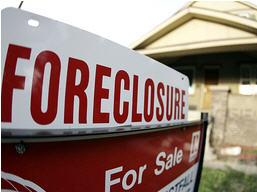../../../..//2008/04/01/swiss-banking-giant-ubs-is/
Swiss banking giant UBS is now up to $40 billion in total mortgage related writedowns. Whoopsie-Daisy! [Marketplace]
Thanks for visiting Consumerist.com. As of October 2017, Consumerist is no longer producing new content, but feel free to browse through our archives. Here you can find 12 years worth of articles on everything from how to avoid dodgy scams to writing an effective complaint letter. Check out some of our greatest hits below, explore the categories listed on the left-hand side of the page, or head to CR.org for ratings, reviews, and consumer news.
../../../..//2008/04/01/swiss-banking-giant-ubs-is/
Swiss banking giant UBS is now up to $40 billion in total mortgage related writedowns. Whoopsie-Daisy! [Marketplace]

Today CNNMoney profiles an out of work mortgage banker who has been sending out 10 resumes a day since he was laid off in Feburary. He just got his first interview.

The Wall Street Journal says that about half of foreclosed homes nationwide have “substantial” damage ,much of it inflicted by bitter former homeowners who tried their best to destroy the property before being forced to leave.
../../../..//2008/03/24/some-ex-countrywide-executives-are-starting/
Some ex-Countrywide executives are starting a new company that will buy mortgages, restructure them, and sell them at a profit. [Martketwatch]
../../../..//2008/03/24/jp-morgan-has-raised-its/
JP Morgan has raised its Bear Stearns offer from $2 to $10. [NYT]

Sheila Blair, Chairman of the FDIC, wants to let you know that a few banks will probably fail during the current credit crisis, but you shouldn’t worry about your money because its insured up to $100,000 for a regular bank account and $250,000 for a self-directed retirement account (IRA).
Q: What if banks fail in the credit crisis? Will customer money be safe?

Who would’ve guessed that credit card debt and the subprime meltdown would be the saving grace for one of New York’s decaying cities? Buffalo now hosts over 100 collection agencies that employ 5,200 people who spend their days prodding delinquent consumers to pay their bills. The cottage industry relies on the “strong work ethic [and] even-handed temperament” of Western New Yorkers, who once powered long-departed industrial giants like Kodak and General Electric.

Bill Whitlatch, longtime owner of one of the leading home builders here in northeast Ohio, is among the casualties. Three years ago, he borrowed from regional banks to start six developments in the Cleveland area. Soon the region’s home market turned cold. Buyers vanished. Mr. Whitlatch drained his personal savings of $2 million to keep his company going.
../../../..//2008/03/19/the-new-york-times-ponders/
The New York Times ponders: How could irresponsible mortgage lending “take out take out the whole global financial system?” [NYT]

At Windy Ridge, a recently built starter-home development seven miles northwest of Charlotte, North Carolina, 81 of the community’s 132 small, vinyl-sided houses were in foreclosure as of late last year. Vandals have kicked in doors and stripped the copper wire from vacant houses; drug users and homeless people have furtively moved in. In December, after a stray bullet blasted through her son’s bedroom and into her own, Laurie Talbot, who’d moved to Windy Ridge from New York in 2005, told The Charlotte Observer, “I thought I’d bought a home in Pleasantville. I never imagined in my wildest dreams that stuff like this would happen.”

Reader Eric is pre-approved and ready to buy a house in South Florida. You’d think it would be a piece of cake considering the, uh, climate down there. Apparently not.
The market down here is really bad. I’d say that more than 75% of the houses we’ve seen are short sells or foreclosures. People are really down about the housing situation. You are constantly hearing on the news about how horribly hard it is to sell a house. Houses are selling way under their purported value.

For the first time securities dealers, effective today and for at least the next six months, may borrow from the Fed on much the same terms as banks. The Fed also lowered the rate charged on such borrowings from what’s known as its discount window by a quarter of a percentage point, to 3.25%, and extended the maximum term to 90 days from 30.

Bear Stearns, facing a grave liquidity crisis, reached out to JPMorgan on Friday for a short-term financial lifeline and now faces the prospect of the end of its 85-year run as an independent investment bank.
../../../..//2008/03/14/wamu-has-bad-credit-says/
WaMu has bad credit, says the AP:
Moody’s Investors Service cut Washington Mutual Inc.’s credit rating Friday and said the country’s largest savings and loan will need at least $4 billion more than it expected to cover bad mortgages in 2008.
[AP]

The Seattle Times reports that Washington Mutual has revised its executive bonus plan so continuing fallout from the subprime meltdown won’t affect their annual bonus checks. In a regulatory filing on Monday, the bank moved to exclude the cost of bad loans and expenses arising from foreclosures when calculating net operating profit. By way of explanation, “Spokeswoman Libby Hutchinson said the bonus plan covers almost 3,000 WaMu executives, many of whom are not directly involved in lending,” writes the Seattle Times. When those subprime raping dollars were rolling in, did any of these same executives object that their bonuses was being unfairly pumped by profits not coming from their department? (Pictured: CEO Kerry Killinger, looking clever)

Congress got to ask the subprime CEOs what everyone else is thinking: Why did you get millions and millions of dollars to fail so spectacularly?
../../../..//2008/03/04/dr-housing-bubble-offers-some/
Initially, the lenders gave the impression that the majority of these loans were being given out to sophisticated investors who couldn’t document their $500,000 income and had better places to put their money to work. Clearly this wasn’t the case as we are seeing that 71% of the people are electing for the lowest of the low payments. Of course when the market in California was ripping it up by seeing 20%+ appreciation each year, making the minimum payment made sense because you were going to sell in 1 to 2 years and pocket the change. Heck, it was cheaper than renting!
![]()
Part of ![]()
Founded in 2005, Consumerist® is an independent source of consumer news and information published by Consumer Reports.
